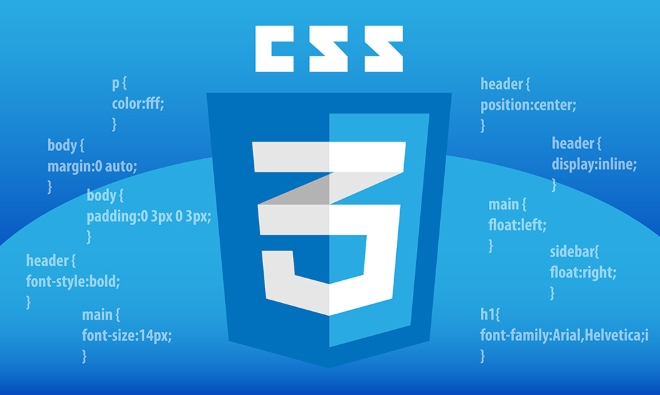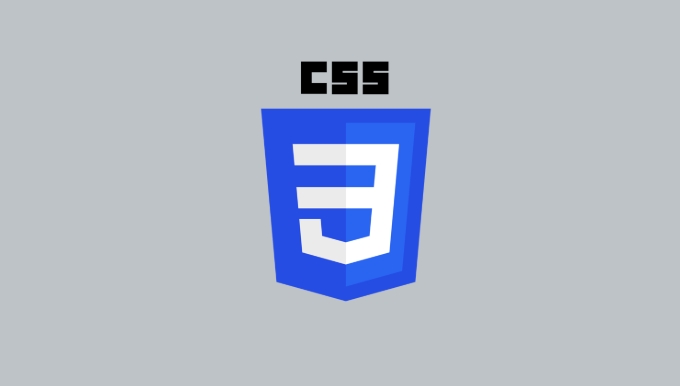How to create a grid in CSS?
To define a grid container, you need to set display: grid; 2. Use grid-template-columns and grid-template-rows to set the row and column size; 3. Use flexible units such as fr, auto, % to implement responsive layout; 4. Use repeat() function to simplify repeated column or row definitions; 5. Use minmax() and auto-fit/auto-fill to achieve adaptive grids; 6. Optionally, precisely control project location through grid-column, grid-row or grid-area; complete settings include container declaration, track definition, gap addition and responsive optimization, and can build an efficient and flexible two-dimensional layout.

Creating a grid in CSS is straightforward using CSS Grid Layout , a powerful two-dimensional layout system. Here's how to set it up step by step.

1. Define a Grid Container
To create a grid, start by applying display: grid to a container element:
.container {
display: grid;
}This turns the element into a grid container, and its direct children become grid items.

2. Set Up Columns and Rows
Use grid-template-columns and grid-template-rows to define the size and number of columns and rows.
Example: A 3-column grid with 2 rows

.container {
display: grid;
grid-template-columns: 100px 150px 100px;
grid-template-rows: 80px 60px;
gap: 10px; /* Adds space between grid items */
}This creates:
- 3 columns (100px, 150px, 100px wide)
- 2 rows (80px and 60px tall)
- 10px gap between items
3. Use Flexible Units (like fr , auto , % )
For responsive grids, use flexible units:
.container {
display: grid;
grid-template-columns: 1fr 2fr 1fr; /* Middle column twice as wide */
grid-template-rows: auto 100px;
gap: 1rem;
}-
fr= fraction of available space -
auto= size based on content -
%= percentage of container width/height
4. Use repeat() for Simplicity
To avoid repetition, use the repeat() function:
.container {
display: grid;
grid-template-columns: repeat(3, 1fr); /* 3 equal columns */
gap: 20px;
}You can also combine patterns:
grid-template-columns: repeat(3, 150px 1fr);
5. Make It Responsive
Use minmax() and auto-fit / auto-fill with repeat() :
.container {
display: grid;
grid-template-columns: repeat(auto-fit, minmax(200px, 1fr));
gap: 16px;
}- This creates as many columns as fit, each at least 200px wide, expanding equally.
- Great for responsive card layouts.
6. Place Items Explicitly (Optional)
You can position items precisely:
.item1 {
grid-column: 1 / 3; /* spans from column 1 to 3 */
grid-row: 1 / 2; /* spans one row */
} Or use grid-area :
.item2 {
grid-area: 2 / 1 / 3 / 4; /* row start / col start / row end / col end */
}Basic HTML Example
<div class="container"> <div class="item">1</div> <div class="item">2</div> <div class="item">3</div> <div class="item">4</div> <div class="item">5</div> <div class="item">6</div> </div>
.container {
display: grid;
grid-template-columns: repeat(3, 1fr);
gap: 10px;
}
.item {
background: lightblue;
padding: 20px;
text-align: center;
} That's it. CSS Grid is flexible and efficient for both simple and complex layouts. Start with display: grid , define your tracks, add gaps, and go responsive when needed. Basically just a few lines and you're set.
The above is the detailed content of How to create a grid in CSS?. For more information, please follow other related articles on the PHP Chinese website!

Hot AI Tools

Undress AI Tool
Undress images for free

Undresser.AI Undress
AI-powered app for creating realistic nude photos

AI Clothes Remover
Online AI tool for removing clothes from photos.

Clothoff.io
AI clothes remover

Video Face Swap
Swap faces in any video effortlessly with our completely free AI face swap tool!

Hot Article

Hot Tools

Notepad++7.3.1
Easy-to-use and free code editor

SublimeText3 Chinese version
Chinese version, very easy to use

Zend Studio 13.0.1
Powerful PHP integrated development environment

Dreamweaver CS6
Visual web development tools

SublimeText3 Mac version
God-level code editing software (SublimeText3)

Hot Topics
 1795
1795
 16
16
 1740
1740
 56
56
 1592
1592
 29
29
 1475
1475
 72
72
 267
267
 587
587
 What is Autoprefixer and how does it work?
Jul 02, 2025 am 01:15 AM
What is Autoprefixer and how does it work?
Jul 02, 2025 am 01:15 AM
Autoprefixer is a tool that automatically adds vendor prefixes to CSS attributes based on the target browser scope. 1. It solves the problem of manually maintaining prefixes with errors; 2. Work through the PostCSS plug-in form, parse CSS, analyze attributes that need to be prefixed, and generate code according to configuration; 3. The usage steps include installing plug-ins, setting browserslist, and enabling them in the build process; 4. Notes include not manually adding prefixes, keeping configuration updates, prefixes not all attributes, and it is recommended to use them with the preprocessor.
 CSS tutorial for creating a sticky header or footer
Jul 02, 2025 am 01:04 AM
CSS tutorial for creating a sticky header or footer
Jul 02, 2025 am 01:04 AM
TocreatestickyheadersandfooterswithCSS,useposition:stickyforheaderswithtopvalueandz-index,ensuringparentcontainersdon’trestrictit.1.Forstickyheaders:setposition:sticky,top:0,z-index,andbackgroundcolor.2.Forstickyfooters,betteruseposition:fixedwithbot
 What is the conic-gradient() function?
Jul 01, 2025 am 01:16 AM
What is the conic-gradient() function?
Jul 01, 2025 am 01:16 AM
Theconic-gradient()functioninCSScreatescirculargradientsthatrotatecolorstopsaroundacentralpoint.1.Itisidealforpiecharts,progressindicators,colorwheels,anddecorativebackgrounds.2.Itworksbydefiningcolorstopsatspecificangles,optionallystartingfromadefin
 CSS tutorial for creating loading spinners and animations
Jul 07, 2025 am 12:07 AM
CSS tutorial for creating loading spinners and animations
Jul 07, 2025 am 12:07 AM
There are three ways to create a CSS loading rotator: 1. Use the basic rotator of borders to achieve simple animation through HTML and CSS; 2. Use a custom rotator of multiple points to achieve the jump effect through different delay times; 3. Add a rotator in the button and switch classes through JavaScript to display the loading status. Each approach emphasizes the importance of design details such as color, size, accessibility and performance optimization to enhance the user experience.
 CSS tutorial focusing on mobile-first design
Jul 02, 2025 am 12:52 AM
CSS tutorial focusing on mobile-first design
Jul 02, 2025 am 12:52 AM
Mobile-firstCSSdesignrequiressettingtheviewportmetatag,usingrelativeunits,stylingfromsmallscreensup,optimizingtypographyandtouchtargets.First,addtocontrolscaling.Second,use%,em,orreminsteadofpixelsforflexiblelayouts.Third,writebasestylesformobile,the
 How to center an entire grid within the viewport?
Jul 02, 2025 am 12:53 AM
How to center an entire grid within the viewport?
Jul 02, 2025 am 12:53 AM
To make the entire grid layout centered in the viewport, it can be achieved by the following methods: 1. Use margin:0auto to achieve horizontal centering, and the container needs to be set to set the fixed width, which is suitable for fixed layout; 2. Use Flexbox to set the justify-content and align-items properties in the outer container, and combine min-height:100vh to achieve vertical and horizontal centering, which is suitable for full-screen display scenarios; 3. Use CSSGrid's place-items property to quickly center on the parent container, which is simple and has good support from modern browsers, and at the same time, it is necessary to ensure that the parent container has sufficient height. Each method has applicable scenarios and restrictions, just choose the appropriate solution according to actual needs.
 How to create an intrinsically responsive grid layout?
Jul 02, 2025 am 01:19 AM
How to create an intrinsically responsive grid layout?
Jul 02, 2025 am 01:19 AM
To create an intrinsic responsive grid layout, the core method is to use CSSGrid's repeat(auto-fit,minmax()) mode; 1. Set grid-template-columns:repeat(auto-fit,minmax(200px,1fr)) to let the browser automatically adjust the number of columns and limit the minimum and maximum widths of each column; 2. Use gap to control grid spacing; 3. The container should be set to relative units such as width:100%, and use box-sizing:border-box to avoid width calculation errors and center them with margin:auto; 4. Optionally set the row height and content alignment to improve visual consistency, such as row
 What is feature detection in CSS using @supports?
Jul 02, 2025 am 01:14 AM
What is feature detection in CSS using @supports?
Jul 02, 2025 am 01:14 AM
FeaturedetectioninCSSusing@supportschecksifabrowsersupportsaspecificfeaturebeforeapplyingrelatedstyles.1.ItusesconditionalCSSblocksbasedonproperty-valuepairs,suchas@supports(display:grid).2.Thismethodensuresfuturecompatibilityandavoidsrelianceonunrel





